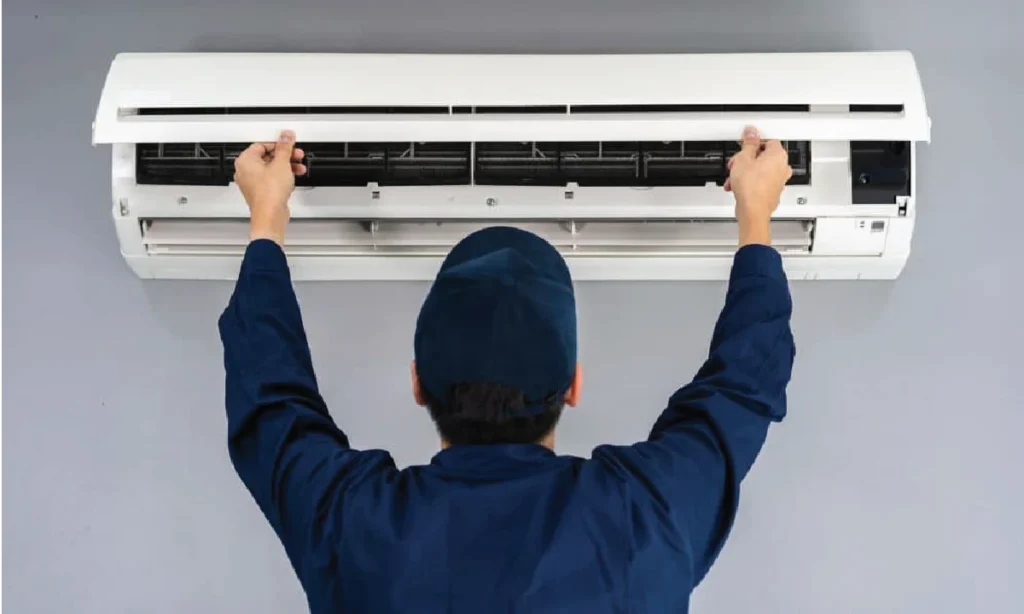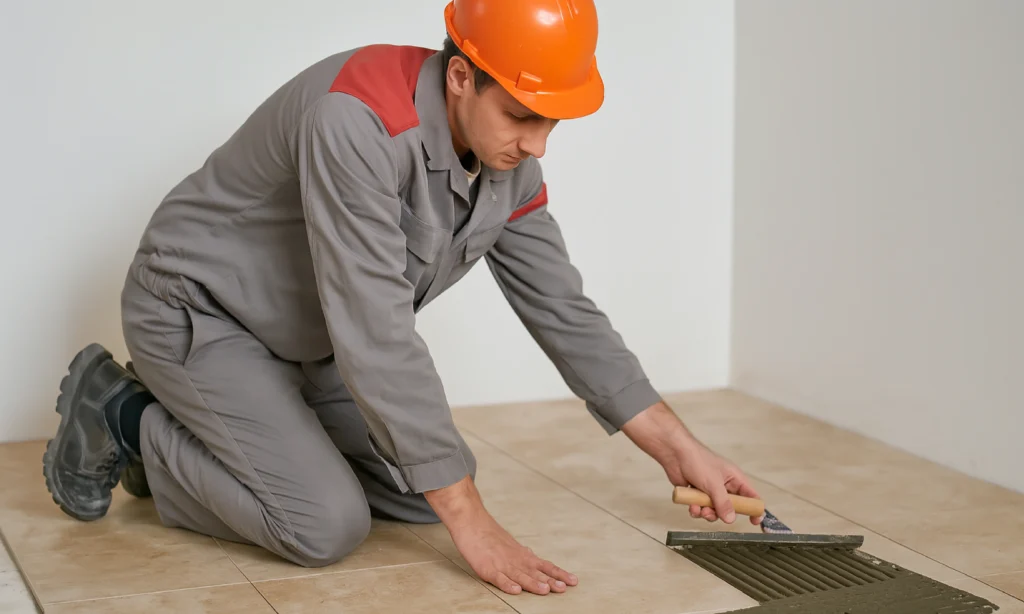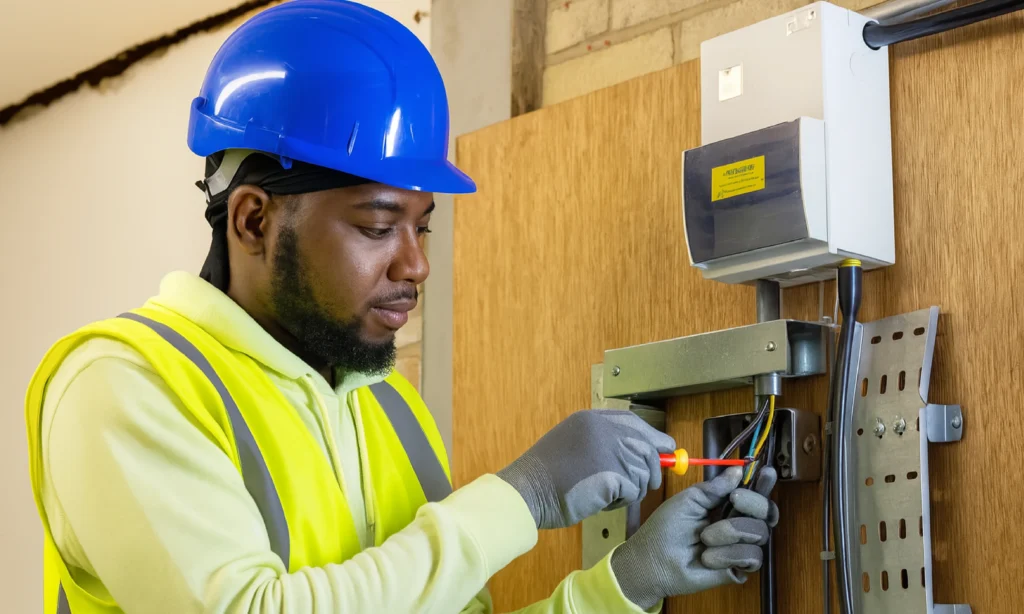The HVAC sector is growing swiftly because Canada has a lot of different temperatures and consumers want better ways to control them that use less energy. Air conditioning and refrigeration systems need skilled AC professionals to put them in, keep them running, and fix them in homes, businesses, and factories. These are the 10 finest jobs in Canada right now for AC technicians who want to make a lot of money.
1. HVAC Technician
HVAC specialists are the most significant personnel in the heating and cooling business. As part of their job, they put in, fix, and maintain HVAC systems in homes, businesses, and factories. They put in, fix, and keep HVAC systems running in homes, companies, and industries as part of their jobs. They check that systems work well and are safe.
Main Duties:
- Part of an HVAC system should include air conditioners, ductwork, and heating units.
- Determining the cause of mechanical and electrical problems.
- Doing regular maintenance and repairs in case of an emergency.
- Looking at blueprints and technical drawings.
Skills Required:
- Good at mechanics.
- Knowledge of electricity.
- Knowledge about refrigerants and rules for the environment.
- Skills for solving problems.
2. HVAC Refrigeration Technician
These experts know about refrigration which is very helpful in supermarkets, warehouses and the food industry. Journeymen can work alone once they have their certificates and have finished their apprenticeships.
Main Duties:
- Putting in and fixing commercial refrigerators.
- Checking the operation of the system and the amounts of refrigerant.
- Making sure that safety and environmental rules are followed.
- Finding leaks and checking the system.
Skills Required:
- One approach to demonstrate that you are able to work with refrigeration is to get a Refrigeration and Air Conditioning Mechanic certification.
- Ability to use advanced refrigeration systems.
- Knowing the restrictions that apply to refrigerants in the environment.
3. Senior HVAC Technician
Senior HVAC specialists are in charge of junior technicians and run complicated HVAC projects. They are generally the first person clients talk to and make ensuring that projects stay on schedule and under budget.
Main Duties:
- Leading teams that install and fix things.
- Doing advanced diagnostics and making the system work better.
- Teaching and guiding younger workers.
- Keeping track of documentation and interactions with clients.
Skills Required:
- A lot of hands-on experience.
- Skills in communication and leadership.
- Advanced technical knowledge of HVAC systems.
4. HVAC Project Manager
HVAC project managers are in charge of making plans, carrying them out, and finishing HVAC installations and modifications. They make sure that projects stay on track and within budget by working closely with contractors, customers, and engineers.
Main Duties:
- Making plans for project schedules and how to use resources.
- Managing budgets and buying supplies.
- Overseeing technicians and subcontractors.
- Making sure that safety and building codes are followed.
Skills Required:
- Good in organizing and leading others.
- A project management qualification, such the PMP, is a plus.
- Knowledge of how HVAC systems work and how buildings are built.
5. HVAC Sales Representative
HVAC salesmen sell HVAC goods and services using their salesmanship and technical knowledge. About the best systems for their requirements, they speak with contractors, companies, and homeowners.
Main Duties:
- Getting leads and keeping track of client accounts.
- Making quotations and proposals.
- Getting aid from experts to find HVAC solutions.
- Staying up to date on new goods and developments in the area.
Skills Required:
- Good in getting along with others and negotiating.
- A good understanding of how HVAC systems work.
- Ability to handle more than one client and project at a time.
6. HVAC Engineer
HVAC engineers plan and improve heating and cooling systems for new buildings and renovations. They check that systems are energy-efficient and suit the needs of customers.
Main Duties:
- Using CAD and simulation software to plan HVAC systems.
- Doing energy and load calculations.
- Working with architects and builders.
- Making sure that codes and environmental standards are followed.
Skills Required:
- You need to have a degree or diploma in HVAC or mechanical engineering.
- Being able to use design software like Revit and AutoCAD.
- Good at figuring things out and coming up with solutions.
7. Air Conditioning Technician
Air conditioning experts know how to put in, fix, and keep air conditioning systems in good shape. They check air conditioning systems in homes, businesses, and factories to ensure sure they perform as well as they can.
Main Duties:
- Putting in window, split, and central air conditioning systems.
- Finding and fixing broken units.
- Doing regular maintenance to keep things running well.
- Giving customers tips on how to make their systems better.
Skills Required:
- Understanding of different AC systems and coolants.
- The ability to fix problems with electrical and mechanical systems.
- Skills in customer service.
8. HVAC Estimator
HVAC estimators look at the needs of a project to come up with reliable cost estimates. They are very important for planning and bidding on projects.
Main Duties:
- Going over drawings and project requirements.
- Finding out how much it will cost to rent tools, hire people, and buy goods.
- Making thorough bids and proposals.
- Working with suppliers and subcontractors.
Skills Required:
- Good at math and analysis.
- Have used estimating software before.
- Ability to talk and negotiate well.
9. Control Panel Technician
Control panel specialists put in and fix the electronic control systems that keep HVAC equipment running. They make sure that systems run on their own and do so in an efficient way.
Main Duties:
- Setting up and wiring control panels.
- Figuring out what’s wrong with software and electrical systems.
- Testing and fine-tuning control systems.
- Keeping track of documentation and compliance.
Skills Required:
- Knowing about electricity and electronics.
- Understanding of programmable logic controllers (PLCs).
- Being able to read electrical diagrams.
10. Pipefitter
Overview: Pipefitters work on HVAC systems by putting in and fixing pipes. They make guarantee that gases and liquids needed for heating and cooling can be moved safely and quickly.
Main Duties:
- Cutting, putting together, and putting in pipes.
- Looking for leaks in pipe systems.
- Looking at plans and sketches of how things work.
- Working with HVAC engineers and techs.
Skills Required:
- Being able to work with machinery and keep them in shape.
- Understanding how to use tools for welding and pipefitting.
- Able to work in small places.
Why Pursue a Career as an AC Technician in Canada?
Growing Industry Demand
It is always necessary to have HVAC services in Canada because of the cold winters and hot summers. The necessity for structures that use less energy and green technologies is also pushing the profession to come up with new ideas and hire more people.
Good Pay and Benefits
Many HVAC positions pay more than the national average and come with perks like health insurance, retirement plans, and paid training.
A Variety of Career Paths and Opportunities
There are many various jobs in HVAC, from working as a technician to working in engineering and management. Certifications like the Red Seal Program make it easier to go around and generate more money in other places.
Job Security and Freedom
There is always a need for HVAC skills, and many positions let you work from home or on your own schedule, such as overtime and contract work.
How to Begin and Apply for High-Paying AC Technician Jobs in Canada
1. Get the Right Licenses
A Red Seal Certification: It shows that you are a qualified HVAC professional and is accepted all around Canada.
Certifications in a given field: If you have special skills, like working with refrigeration or electrical safety, you’re more likely to get a job.
2. Get Some Experience in The Actual World
It’s really crucial to have apprenticeships and on-the-job training. You might volunteer or intern with HVAC companies to make your resume better.
3. Make Sure your Cover Letter and Resume Are Strong
Be sure to include your abilities, qualifications, and professional experience that is relevant. Be sure to customize your application for each job, emphasizing how you meet or surpass the requirements.
4. Use job boards and make connections
You can use sites like Indeed, Job Bank, Workopolis, and LinkedIn to find work. Join professional groups like the Canadian Institute of Plumbing & Heating (CIPH), go to trade exhibits and other events in your field, and more.
5. Get ready for interviews
Be ready to talk about technological issues. Show that you can support clients and solve problems. Show that you know the safety regulations and requirements.
Last Thoughts
There are a number of interesting, well-paying employment in Canada for AC technicians of various levels in the HVAC market. These are the ten best jobs to start or go up in your career. They will assist you get your money in order and move up in your career. obtaining the necessary certifications, obtaining experience, and applying for positions will help you get a decent job in this essential profession.



